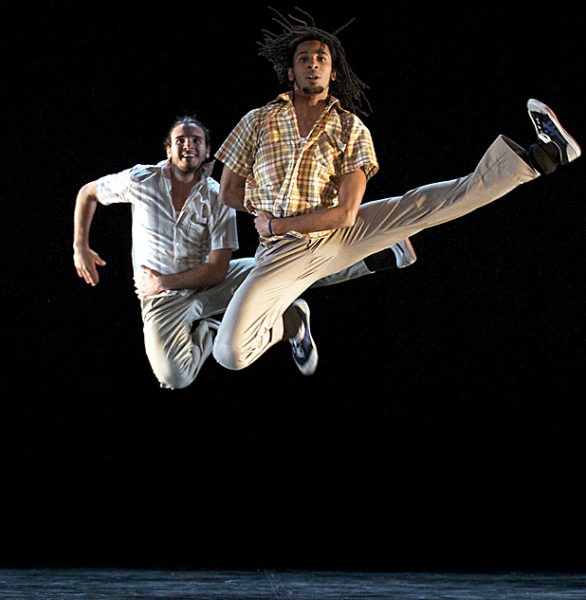Showing @ Festival Theatre, Edinburgh, Tue 15 – Wed 16 May
Sombrisa
Carmen
Mambo 3XX1
Danza Contemporanea de Cuba was formed in 1959, the same year as the country’s revolution. It can be no surprise to audiences then, that the company’s current tour is a vibrant and progressive showcase of dance that blends a medley of influences and styles testing convention and producing a palette of three distinct movement pieces.
Itzik Galili is the choreographer behind Sombrisa, the opening piece set to Steve Reich’s Drumming Part One. The heavy rhythms provide a soundscape to which themes of sport are gracefully staged. The influence of European ballet is obvious: delicate movements are juxtaposed with sharper ones giving the dance texture. Galili is known for his keen interest in lighting and has used it minimally with total calculation and the creation of shadows highlights the deeper, darker undertones of the piece.
Following Sombrisa is Kenneth Kvarnstrom’s Carmen – altogether a much brighter, animated performance. Smaller gestures and facial expressions add personality to the piece and compliment bigger, exaggerated movements. The dance feels truly impulsive – and this is Kvarnstrom’s real strength – each move is directed by Bizet’s music and diligently captures the humour and tone that is so iconic in the original opera score.
To complete the trio is George Cespedes’s Mambo 3XX1, the Olivier Award nominated dance piece that gave DCC international acclaim on the 2010 tour. Throughout the thirty minute piece, Cespedes’s intentions become clear: he is trying to reinvent mambo; charging it with passion, twisting it with street, distorting the tempo and breaking it down. Dancers begin moving individually, then in pairs and groups. Cespedes uses different styles for each group to represent the change in culture, sex or class culminating in a “dance is universal” sort of message.
While you might not be a particularly big fan of dance, or more specifically mambo, the presentation of three contrasting pieces of movement makes for an interesting exploration of how contemporary dance is progressing into the twenty-first century and how it could potentially continue. Galili, Kvarnstrom and Cespedes are internationally renowned choreographers and their work with DCC is unique to the international dance circuit. This might be the first dance show of its kind that you see, but it probably won’t be the last.
